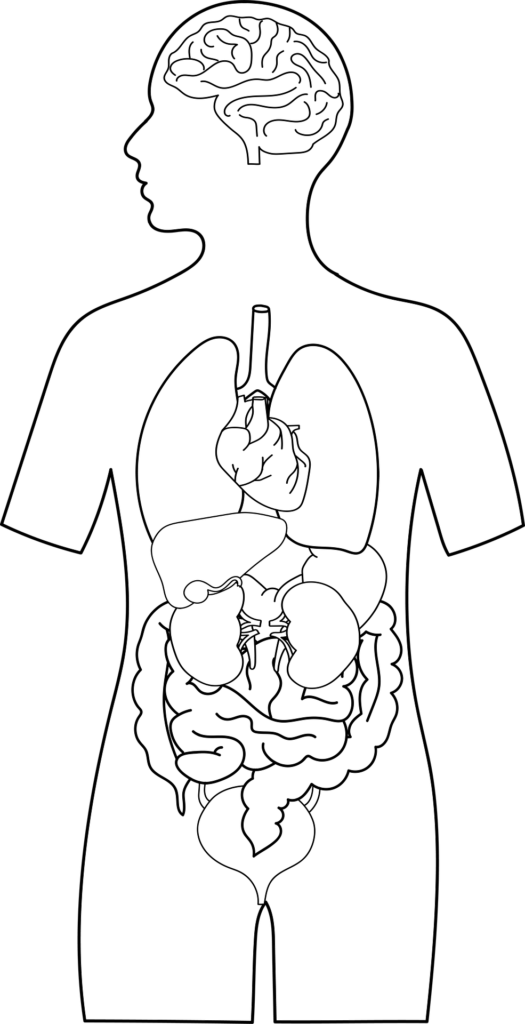Table of contents
What is kidney failure?
Kidney failure is a condition caused by the inability of the kidneys to adequately filter out toxins and other waste substances. One of the main functions of the kidneys is to purify the body. They do this by filtering the blood that reaches the kidneys. The blood contains toxic substances that need to be purified, such as urea, phosphorus or the very medicines that older adults ingest. Once purified, the blood returns to circulation through the renal vein. If the kidneys stop filtering properly, waste can build up that affects the chemical composition of the blood. In this article Nomenial finds out more about acute and chronic renal failure..
Types of kidney failure
Kidney failure in older adults can take two forms:
Acute kidney failure (AKI)
The functions of the kidney are suddenly and abruptly impaired. This alteration manifests itself in the three main functions of the kidney: the depurative one and those associated with the regulation of the volume of liquids and the composition of ions.
It produces a retention of liquids because the person who suffers from it urinates little or even stops urinating.
There is a possibility that these alterations may become serious and require immediate treatment to avoid greater consequences.
Acute renal failure is reversible, so through proper treatment it is possible to cure it.
Chronic renal failure (CRI)
It is, as its name suggests, irreversible kidney failure, so that it persists permanently and progressively. The speed with which it progresses towards advanced renal failure will depend on two factors: the cause of the condition and the type of treatment that older adults can undergo to stop its advance.
The chronic renal insufficiency is characterized by its lack of symptoms even in the advanced stages of the disease, since the organism adapts to the alterations that in the kidney take place and, therefore, no symptom is externalized that alerts us of the presence of the same one. Therefore, the actions that could be taken to stop its evolution are much more limited than if an early diagnosis had been made.
This is especially common in older adults. It is estimated that 37% of people over 65 suffer from it, a percentage that increases to 50% in those over 85.
In the most advanced stages of chronic kidney failure, what is called end-stage renal disease (ESRD) occurs. This appears after a very long time (between 10 and 20 years) of alterations in the kidney, which have continued developing until the kidneys can no longer attend to the needs that the body demands.
The fragility of their organism, together with the comorbidity that they usually suffer (existence of two or more diseases at the same time), causes that the terminal renal insufficiency in old people is more habitual than in people of smaller age.
Renal insufficiency symptoms
The symptoms of kidney failure in older adults are not usually very evident until the disorders reach very advanced stages. Therefore, it is especially important to be alert to any signs of symptoms.
The most common are the following:
Fatigue and weakness.
Stomach discomfort, nausea or vomiting.
Muscle cramps and twitching.
Constant itching.
Swelling of the lower extremities (feet and ankles).
Fluid retention.
Continuous urge to urinate.
chest pain (in case fluid builds up in the lining of the heart)
shortness of breath (if fluid builds up in the lungs)
Hypertension (high blood pressure) that is difficult to control.
Poor appetite and impaired sense of taste (food tastes metallic)
Decreased mental acuity
Problems falling asleep.
Acute and chronic renal failure: Causes and risk factors
There are several causes and diverse risk factors that cause the appearance and development of renal failure:
Advanced age. Older people are more at risk of suffering from it.
Why? Because of these four circumstances:
Diminished renal flow.
Impossibility of the kidney to make a correct reabsorption of water and salt, so there is a reduction in the amount of sodium in the blood. Hence, it is said that the older person’s kidney “loses salt”.
Decrease in the number of glomeruli and glomerular capillaries
Medication. Certain drugs such as anti-inflammatories, antibiotics or antihistamines can lead to this disease.
Diabetes with poor blood sugar control. The kidney damage caused by diabetes is called diabetic nephropathy.
High blood pressure. It is the second most common cause of failure.
Obesity. A body mass index above the recommended level (more than 25) is one of the main risk factors for the development of kidney failure.
Low level of kidney function and other kidney diseases (e.g., polycystic disease, accumulation of cysts in the kidneys)
Gender. Kidney failure occurs and acts differently in men and women. In men it evolves more rapidly than in women, yet in women the prevalence rate is higher.
Tobacco use. Patients who are regular smokers are at greater risk of suffering chronic end-stage renal disease.
Genetics.
Acute and chronic renal failure: Prognosis of renal failure
The prognosis of renal failure in older adults depends, to a great extent, on the fragility that our older adult already has associated with other pathologies that he suffers and the stage in which the disease is found.
Thus, for example, grade 4 renal failure in older adults will present a more severe prognosis, since in this phase of the disease there has already been a substantial deterioration of renal functions.
Sometimes heart failure and kidney failure in older adults occur at the same time, worsening the patient’s prognosis. So high is its coexistence that it has been defined with a proper name: cardio-renal syndrome.
Heart failure is triggered in the most advanced stages of chronic kidney disease, caused by the very consequences of altered kidneys.
Treatment of renal failure
There are specific treatments for low kidney function in older adults. One of the most effective treatments is diet to treat kidney failure, which consists of changing the following eating habits:
Substituting salt for spices or lemon juice.
Prioritize the consumption of fresh vegetables instead of packaged ones.
Avoiding processed meats (such as sausages).
Avoid pastries and various ultra-processed sweets and replace them with fruit.
Avoid foods in vinegar, such as olives or pickles.
Increase consumption of foods containing vitamin D (such as oily fish, wheat or eggs) and calcium (dairy).
If this treatment is not enough because our older adult presents a serious deterioration of his renal functions, the doctor will evaluate the application of dialysis.
Our experience as caregivers of older adults has taught us that patients with kidney failure improve their well-being and decrease their mortality if they receive the specific care that this disease requires. In Nomenial we are specialists in selecting caregivers with experience in the treatment of this pathology, thanks to which, our older adults, increase their quality of life.







